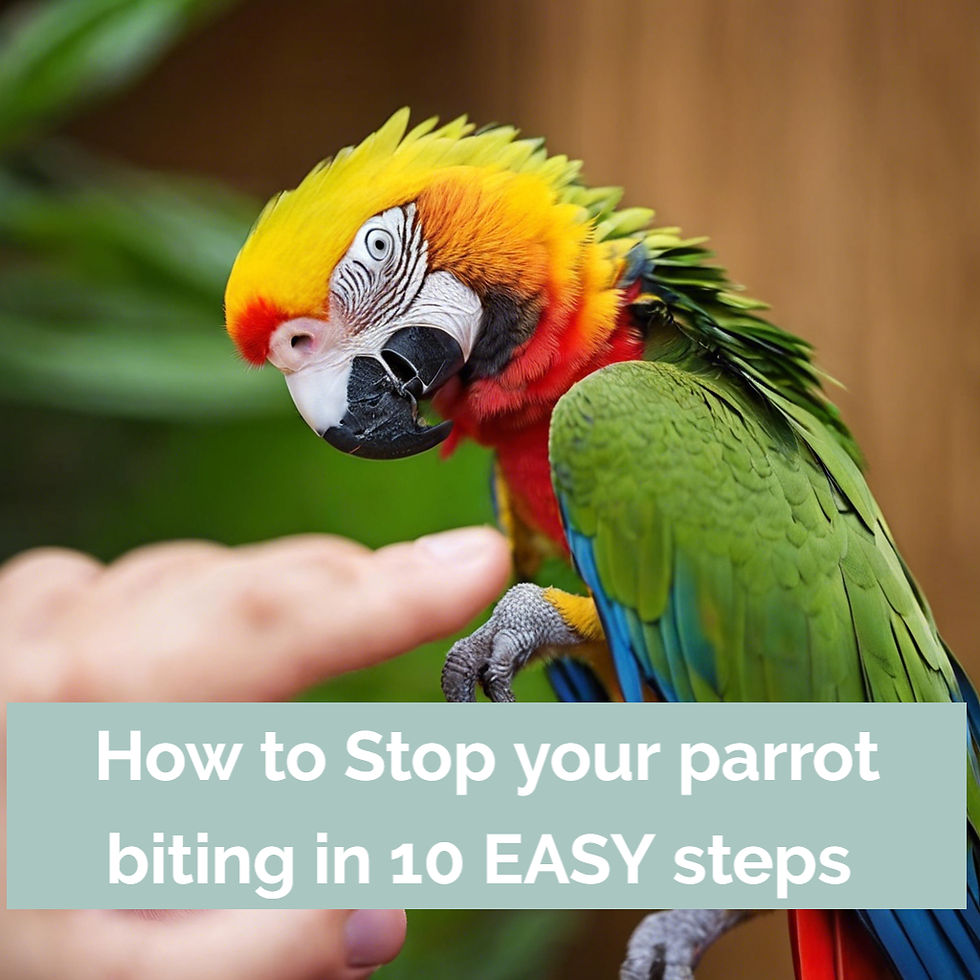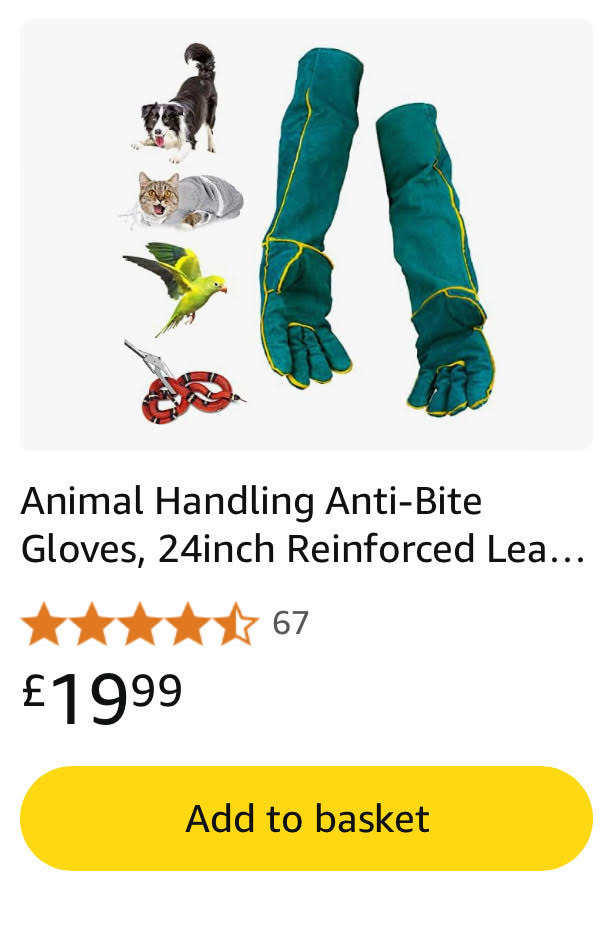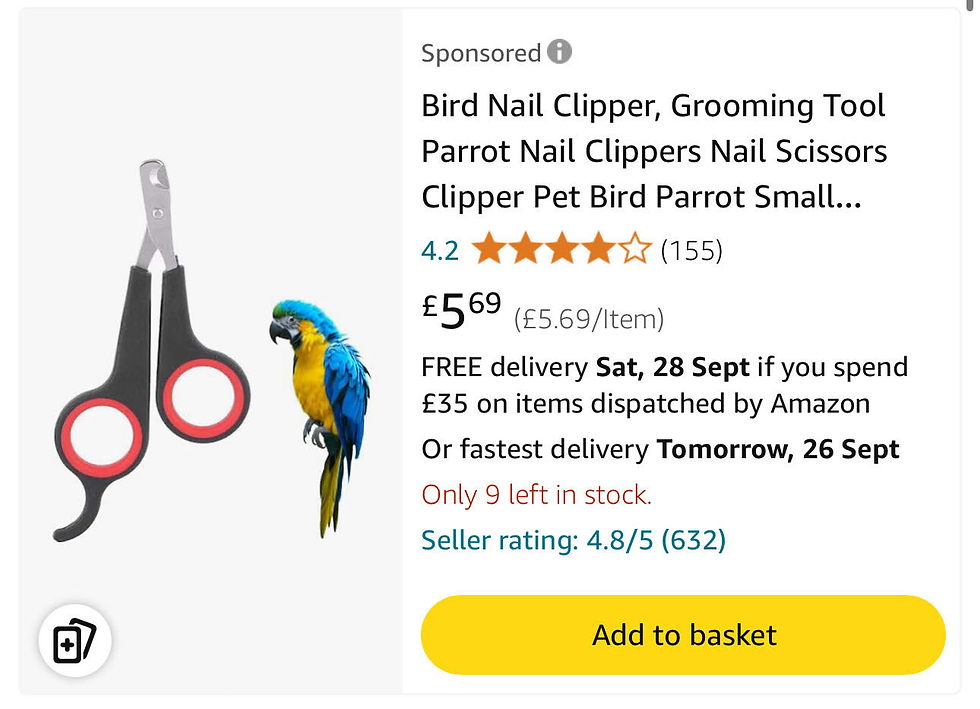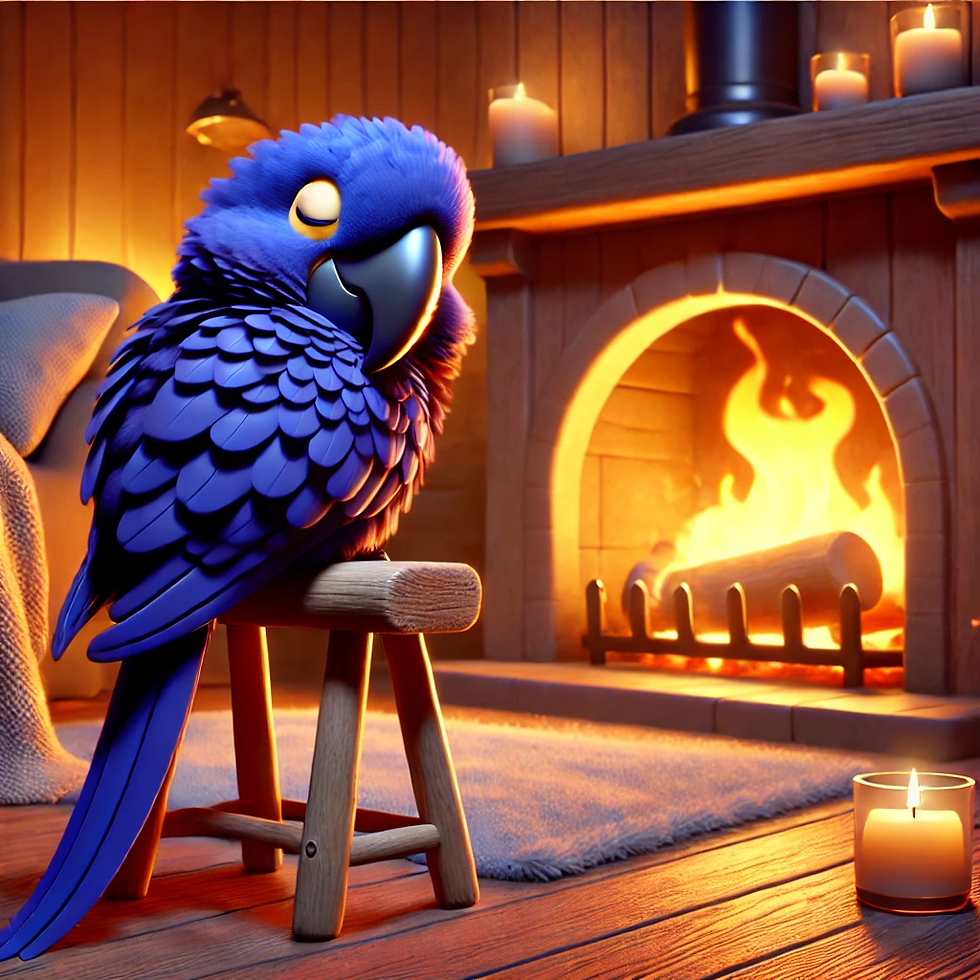How to stop parrot biting in 10 easy steps
- Claire MG
- Sep 25, 2024
- 4 min read
How to Stop Parrot Biting: A Step-by-Step Guide
Biting is a common issue many parrot owners face, you may wonder why is my parrot biting me ? but it’s important to understand why parrots bite and how to address the behavior calmly and effectively. Whether your parrot is biting out of fear, frustration, or even playfulness, there are strategies you can use to minimize or stop the behavior.
Here’s a step-by-step guide to help stop your parrot from biting:

1. Understand Why Parrots Bite
Parrots bite for a variety of reasons, and understanding the cause is the first step in addressing the behavior. Common reasons include:
-Fear: If a parrot feels threatened or startled, it may bite as a defensive reaction.
- Territorial Behavior**: Some parrots may become possessive of their cage, toys, or perch and bite to protect their space.
-Hormonal Changes: During mating season, parrots can become more aggressive due to hormonal shifts, leading to biting.
-Frustration or Overstimulation: Parrots might bite when they’re overstimulated, frustrated, or tired of a certain activity.
-Playfulness: Young parrots or parrots that are not properly trained may bite while playing, not understanding that it’s painful for humans.

2. Stay Calm and Don’t React Dramatically
When your parrot bites, your first instinct might be to yell, pull away, or react loudly, but these responses can reinforce the behavior. Parrots love attention, and even a negative reaction can be seen as rewarding. Instead:
- Stay calm and composed: Keep your voice steady and avoid making sudden movements.
Don’t shout Loud reactions can scare your bird and encourage more biting.
Avoid pulling away suddenly this might trigger your parrot to clamp down harder.

3. Redirect the Behavior
One of the best ways to stop biting is to redirect your parrot’s attention to something else. When you notice your bird becoming agitated or ready to bite:
- Offer a toy Distract your parrot with a chew toy or foraging toy.
- Use a perch: If you see biting tendencies, use a perch or a handheld stick to interact with the bird instead of your hand.
- Give a command: Use basic commands like “Step up” or “Down” to shift your parrot’s focus away from biting.
4.Respect Personal Space
If your parrot feels threatened, it may bite to defend itself. Respecting your bird’s personal space and recognizing warning signs can help prevent bites:
- Read body language**: If your parrot fluffs its feathers, opens its beak, or fans its tail, it may be signaling that it’s agitated and doesn’t want to be touched.
- **Give space**: If your bird is acting territorial, especially around its cage, avoid reaching into the cage when it’s inside. Wait until it comes out on its own.
5. Train Positive Behavior
Positive reinforcement is one of the most effective tools for stopping biting. By rewarding good behavior, you can teach your parrot that gentle behavior leads to positive outcomes:
- Reward for good behavior: Every time your parrot interacts with you without biting, immediately reward it with a treat, praise, or attention.
- Use clicker training: Clicker training can be an excellent method for reinforcing positive behavior. Pair the clicker sound with a reward when the bird behaves well, and over time, the parrot will associate the clicker with positive actions.
6. Handle Bites Properly
If your parrot does bite, how you handle the situation is crucial. Here’s what you should do:
- Stay still for a moment: If the bird bites and doesn’t let go, don’t yank your hand away. Instead, stay still for a moment to avoid escalating the behavior.
- Gently push forward: Sometimes gently pushing your hand or the object the parrot is biting toward the bird will encourage it to release its grip.
- Set the bird down: After a bite, calmly set your parrot down or move it away from your hand or body to show that biting doesn’t lead to attention or interaction.
7. Establish a Routine
Parrots thrive on routines, and a well-structured daily routine can help minimize biting. Make sure your parrot gets regular meals, playtime, and training sessions, and try to provide consistent interaction. Parrots that are well-stimulated and comfortable with their environment are less likely to bite out of frustration or boredom.
8. Avoid Triggering Situations
If you notice that your parrot bites in certain situations, try to avoid or modify those triggers. Common triggers include:
- Entering the cage: Some birds bite when someone reaches into their cage. Encourage the bird to step out of the cage on its own rather than reaching in.
- Sudden movements: Fast or unexpected movements can startle your bird, leading to biting. Always move slowly and predictably around your parrot.
- Loud environments: Loud noises or chaos in the environment can stress parrots out, leading to biting as a reaction to fear or anxiety.
9. Be Consistent with Training
Consistency is key to stopping biting. Make sure everyone in your household follows the same training methods and uses the same responses to biting. If one person allows the bird to bite without consequence, the parrot may continue the behavior.
Consult an Avian Vet or Behaviorist
If biting continues to be a major issue despite your efforts, it may be helpful to consult an avian veterinarian or a bird behaviorist. Sometimes, biting can be a sign of underlying health issues, or a professional may be able to help you identify specific triggers and solutions for your bird’s behavior.
Training a parrot to stop biting requires patience, consistency, and understanding. By using positive reinforcement, respecting your bird’s personal space, and recognizing the reasons behind the biting, you can foster a healthier and more trusting relationship with your parrot. Over time, with consistent training, biting can be reduced or eliminated altogether.






Comments